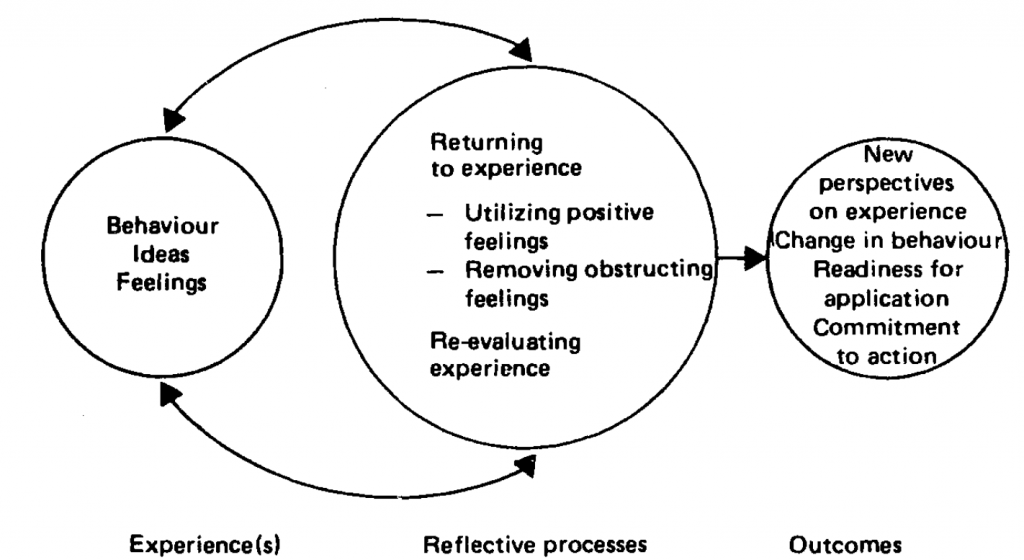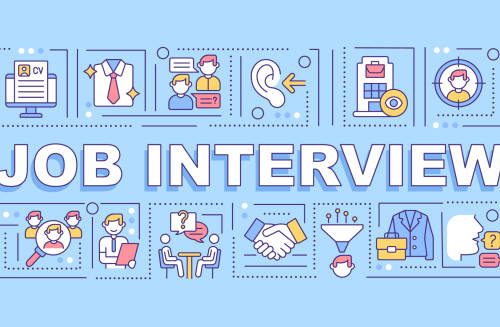GETTING HIRED FOR YOUR DREAM JOB 101
THE FIRST HURDLE
Whilst being on Placement has taught me many things about working in the theatre industry, it has yet to teach me one of the biggest fights of working in the industry…
That of course being getting into the industry in the first place.
As part of this module, we took part in ‘simulated interviews’ in hopes to prepare us for the battles of finding work post-Graduation.
David Boud claims “reflection has the objective of making us ready for new experience. The outcomes of reflection may include a new way of doing something, the clarification of an issue, the development of a skill or the resolution of a problem.” (P.34, Boud, D., Keogh, R., & Walker, D.)
With this in mind I hope to use my blog to effectively reflect on my preparation and completion of the simulated interviews. Hopefully, with the outcome of identifying issues I faced during the interviews, and establishing how I can improve upon my interview skills.
I will be using Boud’s reflective model within this blog to aid with my reflection and ensure I can fully learn from my experience.

BATTLE STATIONS READY!
I have always been a firm believer in preparing yourself for any sort of first impression, and is there a more important first impression than the one that dictates the trajectory of your career post-university?
Part of this preparation, naturally, is predicting what questions you may be asked in the job interview. On this module we were taught that there were 4 main types of questions, “Autobiographical, Competency, Strength-Based, and Technical’. In the days counting down to the simulated interview, I perused examples of all types of these questions and thought up insightful responses to appropriately answer these.
For example:
“Give us an example of a time you led a team?”
Answer. I worked as a Team Leader on NCS, where it was my responsibility to take care and lead a group of sixteen sixteen-year-old’s. One of the main challenges within the role was keeping the group on task, so I learned to motivate them with incentives, such as once they finished the task at hand, I would lead a game of ‘mafia’, a game I had introduced them to, that they came to love.
Another important, perhaps often overlooked, part of the interview process is getting yourself in the right headspace for the task. I allowed time to not only get a good night’s sleep before the interview, but to wake up early to give myself time to get ready. Part of my morning routine consisted in a short meditation exercise to calm my nerves. I then put care into my appearance, aiming to look professional, as the old saying goes ‘Dress for the job you want, not the one you’ve got.’ Finally, before making those final steps to the interview room, I took the time to get myself a coffee, for both the comfort and boost of energy I needed prior to the interview.

IN THE BOARDROOM…
Whilst I would love to say that my interview was a complete success, this would be a lie. Once facing my interviewers, I felt my nerves suddenly come back, and involuntarily felt my body language shift from open to closed. My previous studying of potential questions proved no help, as I stumbled upon my words, and rambled on about minute points. Leaving the situation, I suppose rather candidly I felt like a failure, certain that had this have been a real interview, there would have been no chance of me getting the job.
Although I initially felt rather disappointed in myself, I knew that wallowing in self-pity was pointless, and instead I took the steps to reflect upon the feedback my peers gave me. I was told the content of my answers “need to be more specific/ relevant” and that my answers needed to be more detailed, rather than a snappy summary of my skills. This feedback allowed me to fully realise one of my shortcomings when being interviewed was a tendency to give vague or brief answers, and that I needed to work towards providing more detailed examples to my interviewers.
SO, JUST HOW WILL I GET MY DREAM JOB?
Whilst the interview itself may have been rather unsuccessful for me, it’s successfully taught me where I went wrong. Despite, my preparation of questions I was asked being thorough, my answers were haphazardly planned. In the future I would aim to use the STAR technique:

Had I paid this technique better attention before my interview, I could have more successfully answered the questions thrown my way and avoided vague answers. I have learnt that it is simply not enough to only consider what information you will provide to your interviewers, you must also consider how you will deliver this information. It does not matter how brilliant the information you tell your interviewer is, as if they are unable to decipher it amongst poor communication skills, you may as well not have answered the question.
As someone who prides themselves in good communication skills, I was certainly shocked and disappointed with my performance in the simulated interview, however the process has taught me invaluable skills, that will certainly help me make a better first impression for the real thing! Ultimately, I’m rather glad to have realised where I was going wrong now, so I know how to get my dream job post-graduation.
Pages: 1 2
Mastering Preparation
Evaluating Anxiety
You May Also Like

Job Interviews: Selling Yourself For A Pay Cheque
24 February 2023
To Be Or Not To Be – That Is The Interview Question
23 February 2023
